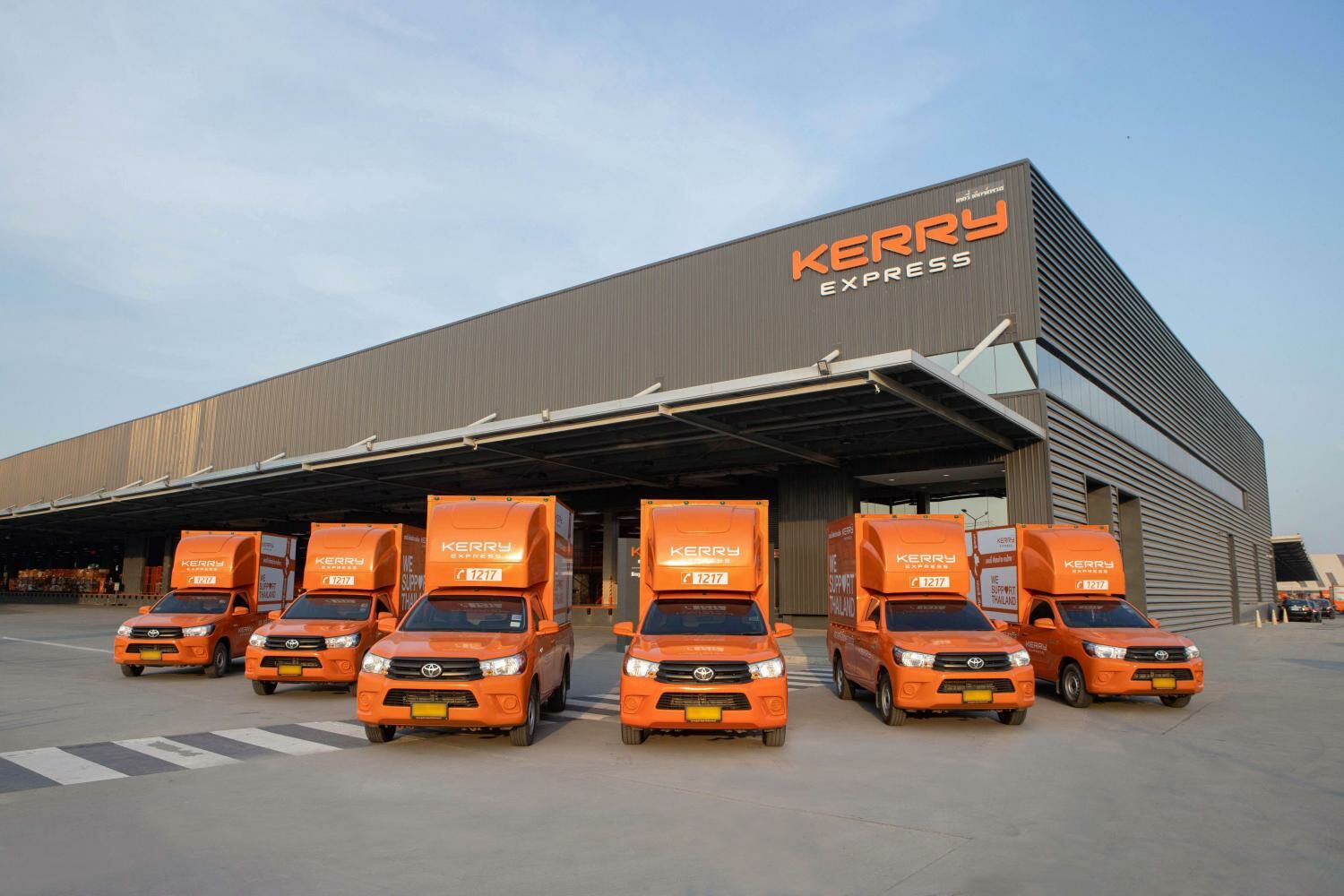KEX Express delivers change: Shifting gears to new markets (video)

KEX Express (Thailand) Plc, formerly known as Kerry Express, is embarking on a dramatic overhaul. The delivery giant is set to close several branches and trim down its workforce as it shifts gears towards the business-to-business (B2B) and customer-to-customer (C2C) sectors.
This bold pivot comes straight from the top, confirmed by company insiders keen to reposition KEX away from traditional e-commerce markets, said a KEX spokesperson.
“We’re shifting our focus from e-commerce, honing in on corporate accounts and C2C.”
This new direction means several branches will close, and staff numbers will be reduced as KEX tightens its operations to fortify these untapped markets.
The logistics landscape has become increasingly tough, with e-marketplace behemoths slashing delivery fees from a decent 18-19 baht per parcel to a measly 12-14 baht. While this move boosts the profits of e-marketplaces, it has left logistics providers like KEX in a pinch, prompting a seismic shift in strategy.
Adding to the shake-up, it has emerged that KEX has severed all delivery ties with major players Lazada and Shopee. By cutting off these agreements, KEX is further distancing itself from dependency on e-commerce platforms—marking a significant turn in its business strategy.
KEX’s rebranding and restructuring efforts came to light in its third-quarter performance report, which highlighted the adoption of the new KEX moniker as part of its transformation journey. However, the numbers show a dip, with sales and services incomes at 2.5 billion baht, an unfortunate 6% drop from the previous quarter and a 13% decline year-on-year.
This decline in revenue is a direct result of a forecasted drop in parcel volume through e-commerce channels, particularly from what KEX had considered its key strategic accounts. The shift away from e-commerce is a calculated play to focus on more lucrative customer segments.
Despite the overall downturn, the C2C segment is proving to be a silver lining. Its revenue share has grown sharply, from 42% in the third quarter last year to 49% now. This surge reflects KEX’s successful campaign to woo and keep high-value customers within this expanding market.
Looking ahead, KEX plans to build on this momentum, aiming to further amplify contributions from high-yield segments. The goal? Surpass the parcel volumes managed through e-commerce and solidify its standing in the B2B and C2C domains.
Industry data paints a broader picture of this competitive arena: in 2023, Thailand Post raked in 20.9 billion baht, Flash Express followed with 20 billion, Global Jet Express (Thailand) or J&T notched up 18.5 billion, Lazada Express secured 14.3 billion, and KEX Express brought in 11.4 billion baht.
Meanwhile, Shopee’s delivery arm, SPX Express (Thailand), last reported revenue of 16.6 billion baht in 2022, reported Bangkok Post.
KEX’s shake-up may be bold, but as the logistics landscape evolves, only time will tell if it can deliver on its ambitious new path.
Frequently Asked Questions
Here are some common questions asked about this news.
Why is KEX shifting focus away from e-commerce deliveries?
KEX aims to reduce dependency on e-commerce platforms due to lower delivery fees and focus on higher-yield B2B and C2C segments.
How might KEX’s new strategy impact its market position?
By concentrating on B2B and C2C, KEX could strengthen its position in these segments, potentially surpassing e-commerce volumes.
What if other logistics firms follow KEX’s strategic shift?
A collective shift might reshape the logistics landscape, emphasizing personalized services over bulk e-commerce deliveries.
How could the end of partnerships with Lazada and Shopee affect KEX?
Ending these partnerships might initially reduce parcel volumes but could increase profitability through high-yield customer focus.
What challenges might KEX face with its rebranding and strategic shift?
KEX could encounter challenges in maintaining service quality and customer retention during its transition to new market segments.
Latest Thailand News
Follow The Thaiger on Google News:


























